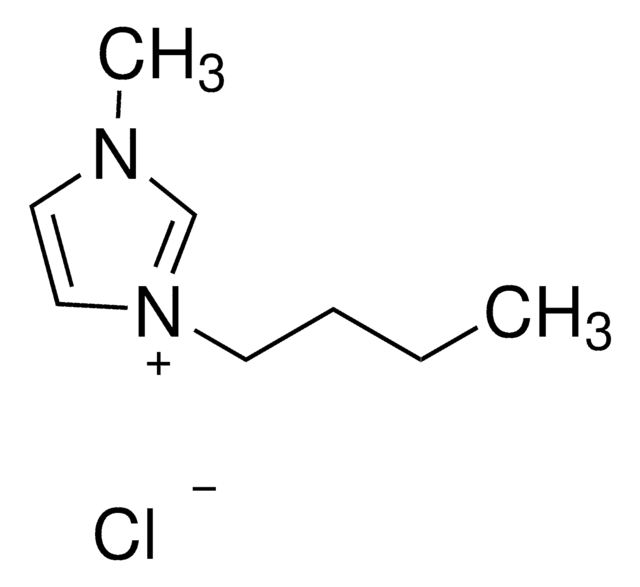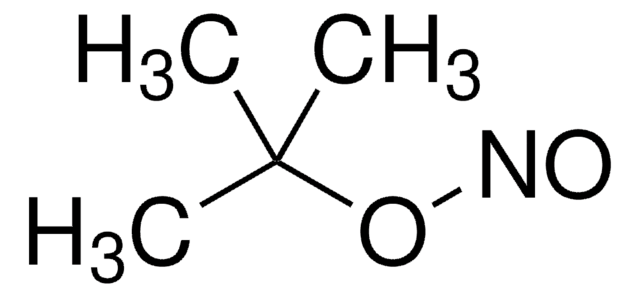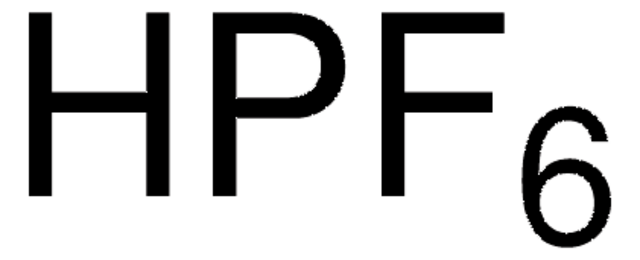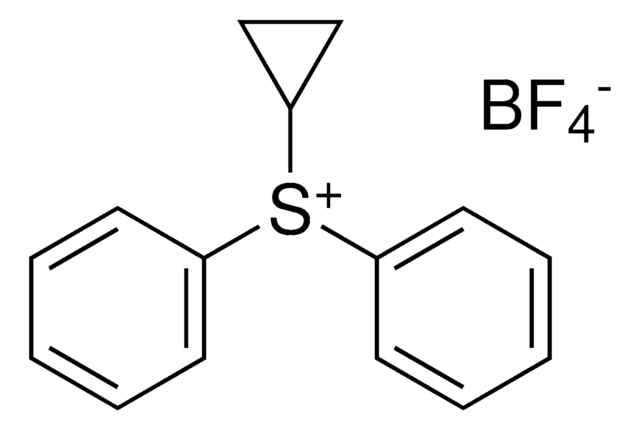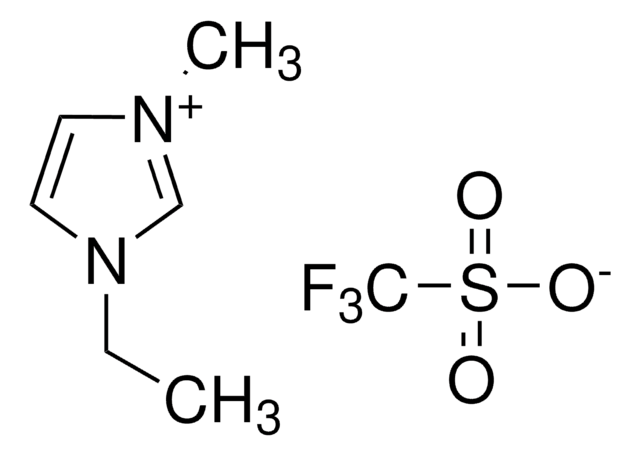08748
Triethylsulfonium bis(trifluoromethylsulfonyl)imide
for electrochemistry, ≥95.0% (qNMR)
Synonym(s):
[SEt3] NTf2
About This Item
Recommended Products
grade
for electrochemistry
Quality Level
assay
≥95.0% (qNMR)
form
liquid
impurities
≤200 ppm water
conductivity
~6.0 mS/cm
mp
-35.5 °C
anion traces
bromide (Br-): ≤10 mg/kg
chloride (Cl-): ≤10 mg/kg
fluoride (F-): ≤10 mg/kg
nitrate (NO3-): ≤10 mg/kg
SMILES string
CC[S+](CC)CC.FC(F)(F)S(=O)(=O)[N-]S(=O)(=O)C(F)(F)F
InChI
1S/C6H15S.C2F6NO4S2/c1-4-7(5-2)6-3;3-1(4,5)14(10,11)9-15(12,13)2(6,7)8/h4-6H2,1-3H3;/q+1;-1
InChI key
BLODSRKENWXTLO-UHFFFAOYSA-N
General description
Application
- As an electrolyte in electrochemical double-layer supercapacitors.
- As a model ionic liquid used in the studies of structure effect of ions on electrochemical windows (EWs).
- As a component of the gel polymer electrolyte, which is used in the construction of symmetrical electrical-double layer capacitors.
- As an electrolyte in the in-plane supercapacitor devices.
signalword
Danger
hcodes
Hazard Classifications
Acute Tox. 3 Oral - Aquatic Chronic 3 - Eye Dam. 1
Storage Class
6.1C - Combustible acute toxic Cat.3 / toxic compounds or compounds which causing chronic effects
wgk_germany
WGK 3
ppe
Eyeshields, Gloves, type ABEK (EN14387) respirator filter
Choose from one of the most recent versions:
Already Own This Product?
Find documentation for the products that you have recently purchased in the Document Library.
Customers Also Viewed
Articles
Over the past decade, Ionic Liquids have attracted much interest for their use as non-aqueous electrolytes in electrochemical applications. In this context, their conductivity as well as their electrochemical stability are the most important physical properties.
Our team of scientists has experience in all areas of research including Life Science, Material Science, Chemical Synthesis, Chromatography, Analytical and many others.
Contact Technical Service